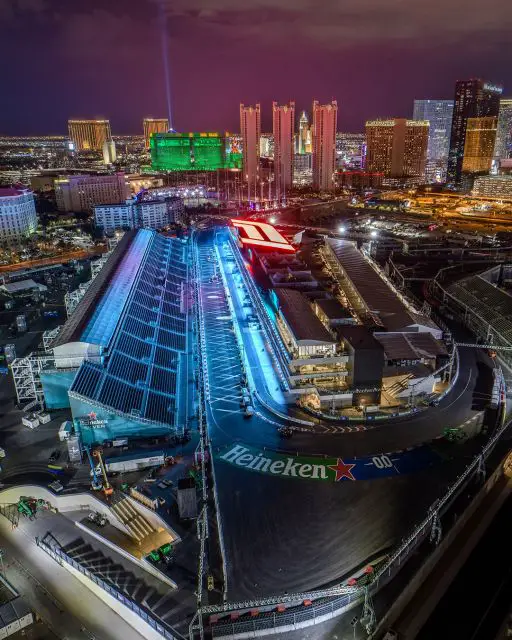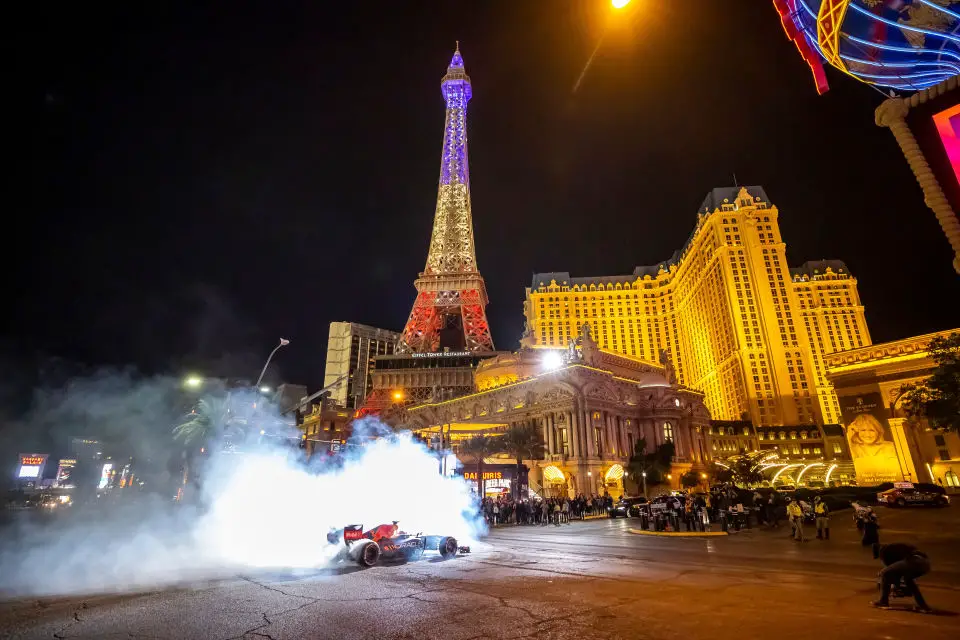Las Vegas GP Struggles to Captivate American Fans, Ticket Sales Plunge
The highly-anticipated Las Vegas Grand Prix, despite its initial hype, appears to have missed its mark in appealing to American Formula 1 fans. Plummeting ticket and hotel prices, coupled with a disconnect from the target audience, paint a concerning picture for the event’s success.
Key Takeaways:
- Pricing Out of Reach: The Las Vegas GP’s exorbitant ticket prices, costly hospitality packages, and high hotel rates have led to questions about its target audience. With entry prices around $2,000 and significantly reduced hotel costs on the Strip, the event seems to cater more to an elite audience than new American F1 fans.
- Underwhelming Sales and Local Discontent: Despite CEO Renee Wilm’s confidence in a sell-out event, tickets remain available, and locals express frustration over traffic disruptions caused by the 3.85-mile street circuit construction. Additionally, Liberty Media’s high licensing fees for businesses with track views initially raised concerns.
- Long-Term Ambitions Meet Short-Term Challenges: Liberty Media’s vision for making Las Vegas a permanent F1 venue, underscored by a $240 million investment for infrastructure, contrasts with the current challenges. The decision to return to Las Vegas after 41 years aligns with F1’s growing popularity in the U.S., yet the actual event’s appeal to American fans remains questionable.


Despite the dazzling allure of Las Vegas and the storied history of Formula 1, the inaugural Las Vegas Grand Prix has encountered unexpected hurdles in captivating the American audience. The event, which marks a significant milestone in F1’s expansion in the United States, has been overshadowed by concerns over its accessibility and appeal to new fans.
The challenges began with the pricing strategy. Liberty Media, owners of Formula 1, set ticket prices and hospitality packages at levels that seemed to target an affluent, international audience rather than the average American fan. This approach has led to a noticeable decline in ticket and hotel prices as the event neared, signaling a lack of demand from the expected demographic.
Further complicating matters, local residents in Las Vegas have voiced their frustration over the inconveniences caused by the event. The construction of the street circuit, which disrupts a significant part of the city, has not only affected daily life but also raised questions about the event’s overall benefit to the local community.
Despite these challenges, Liberty Media remains committed to establishing the Las Vegas Grand Prix as a long-term fixture in the F1 calendar. Their investment in the city, including the construction of a permanent paddock area and pit building, demonstrates a belief in the event’s future success.
The Grand Prix also seeks to leverage the growing popularity of Formula 1 in the United States, fueled in part by the Netflix series and the addition of more U.S. locations to the F1 calendar. However, the actual appeal of the event to American fans is yet to be determined. The report by AP News highlights several factors that may detract from the event’s appeal, including the late-night race time, cold temperatures, and the dominance of Max Verstappen in the sport.
While the Las Vegas Grand Prix represents a bold move by Liberty Media to expand Formula 1’s footprint in the United States, its inaugural event faces significant challenges. The aftermath of the Grand Prix will be crucial in understanding its impact on American fans and the future of Formula 1 in the U.S. market. As the world of Formula 1 continues to evolve, the Las Vegas Grand Prix stands as a test of the sport’s ability to adapt and appeal to new audiences.



